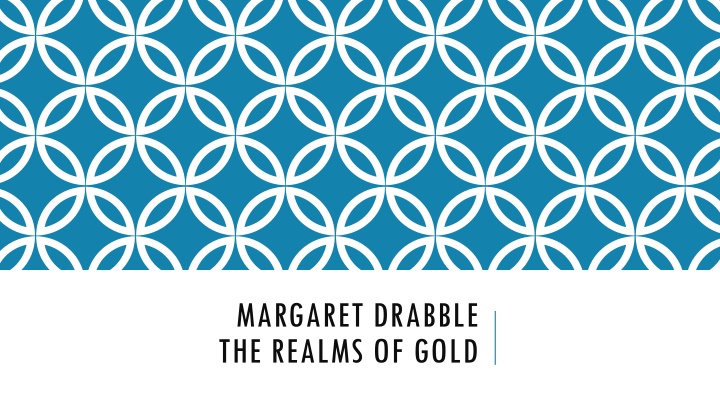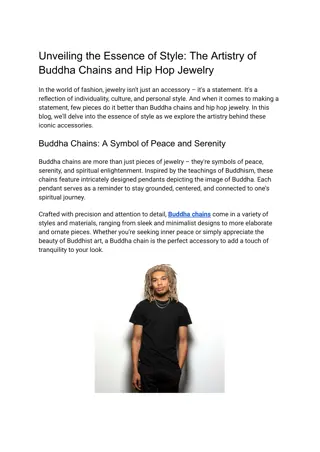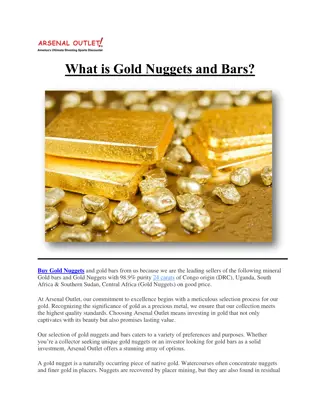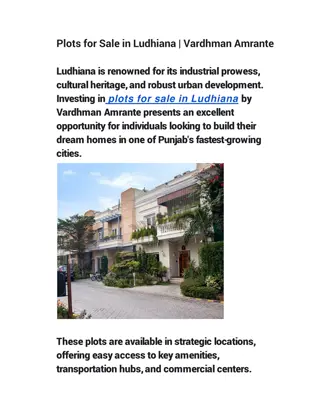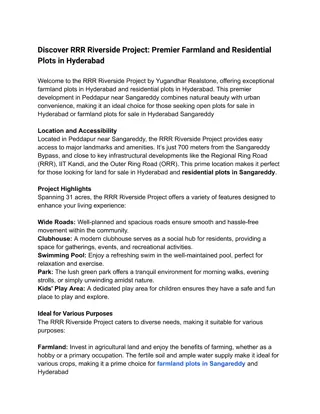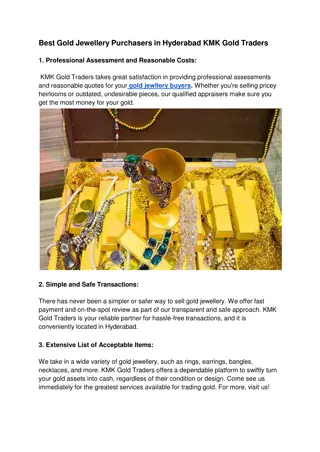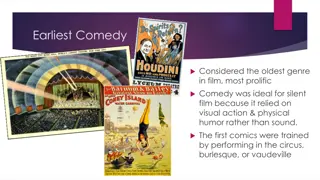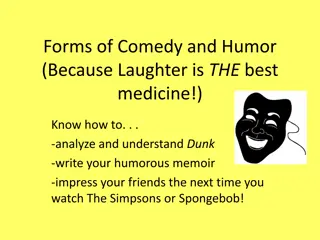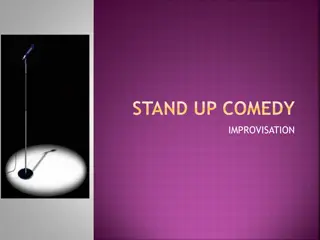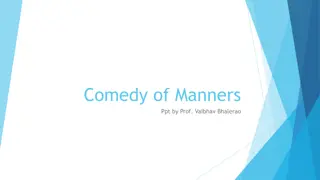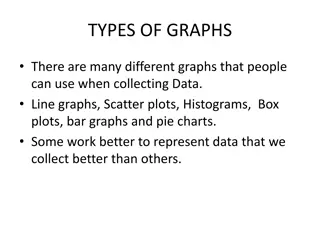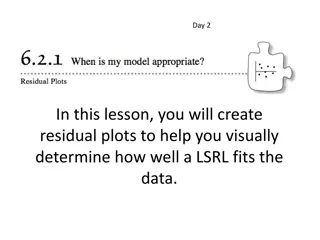The Realms of Gold - A Comedy of Elaborately Structured Plots
In Margaret Drabble's novel "The Realms of Gold," Frances and Karel navigate lost love, family dynamics, and professional pursuits amidst the backdrop of history and archaeology. The intricate plot weaves together themes of survival, true love, and reconciliation, showcasing the resilience of the characters in the face of personal challenges and historical traumas.
Download Presentation

Please find below an Image/Link to download the presentation.
The content on the website is provided AS IS for your information and personal use only. It may not be sold, licensed, or shared on other websites without obtaining consent from the author.If you encounter any issues during the download, it is possible that the publisher has removed the file from their server.
You are allowed to download the files provided on this website for personal or commercial use, subject to the condition that they are used lawfully. All files are the property of their respective owners.
The content on the website is provided AS IS for your information and personal use only. It may not be sold, licensed, or shared on other websites without obtaining consent from the author.
E N D
Presentation Transcript
MARGARET DRABBLE THE REALMS OF GOLD
THE REALMS OF GOLD Drabble has called The Realms of Gold her only comedy. It is the most elaborately plotted of her novels, and Drabble has observed that comedies are permitted such carefully structured plots.
THE REALMS OF GOLD Perhaps Drabble defends her plot to excuse herself for pivoting the outcome of her story on the delay in the mail of a postcard, consciously parodying the tragic turn of William Shakespeare s Romeo and Juliet When Romeo s letter from Friar Laurence is delayed. Unlike the passion of Romeo and Juliet, however, the passion of the lovers in The Realms of Gold, Frances Wingate and Karel Schmidt, is not too swift, too unadvised. Frances and Karel are survivors, and it is for this reason that true love is possible.
THE REALMS OF GOLD The novel begins in a hotel room. Frances is on tour, lecturing about her discovery of an ancient city, Tizouk. One evening, in a fit of loneliness, she writes a postcard to Karel, whom she capriciously rejected six months previously. She now regrets her gesture. Impulsively, she writes on the card, I miss you. I love you. Bothered when she receives no response to her card, she is ignorant of the fact that her card has not been delivered, having been mislaid by the European mail system. Frances is distraught, but carries on as mother to her four children, as a professional, and as a member of her family.
THE REALMS OF GOLD Karel, too, carries on, thinking hopelessly about Frances, his lost love, puzzled by her rejection of him, suffering at the hands of his deranged wife and his students at the polytechnic, where he is a lecturer in history. Both wife and students continually take advantage of Karel s patience and good nature, and he, not quite understanding why, allows them to victimize him.
THE REALMS OF GOLD Karel and Frances s professional interests, history and archaeology, bring to the novel the long view of continuity. This view is partially what sustains Karel and Frances, whose families cannot or will not support them. Karel has been cut off from his family by the horrors of history. He is Jewish, the only member of his immediate family to survive World War II. Frances, on the other hand, has a large family, but it is wracked with odd and self- destructive behavior: alcoholism, suicide, depression. Frances s family is composed of two estranged branches, isolated from each other by an ancient quarrel between two brothers. During the course of the novel, the branches are reconciled. The healing begins when Frances discovers her cousin David, of whom she has never before heard. She meets him professionally at a UNESCO conference in Adra.
THE REALMS OF GOLD The conference has taken Frances away from England at a particularly crucial time in the life of her family. In Tockley, in the English midlands, an old lady discovered dead of starvation turns out to be Frances s estranged great-aunt. As Frances s family is a prominent one, there is a scandal about this shocking neglect of a family member. Frances is called home from the conference and discovers another lost cousin, Janet Bird, the last person to see their great-aunt alive.
THE REALMS OF GOLD Meanwhile, Frances s cousin David is surprised at the conference by the arrival of Karel, who, finally receiving the delayed postcard, flies heedlessly to join Frances at the conference and must be escorted by David back to Tockley. The upshot of these and more complications is the marriage of Karel and Frances and the reunification of Frances s family.
THE REALMS OF GOLD Frances and Karel synthesize stability and freedom; their marriage triumphantly asserts the victory of human freedom through history, continuity, and culture. The horrors of history present in both the Nazi persecution of the Jews, Frances s blighted family history, and the evidence of child sacrifice which Frances has found in her ancient city Tizouk, do not lead to a rejection of continuity but to the passion to grow through it and outlive the evil it contains.
THE REALMS OF GOLD The major image of the novel incarnates the comic attitude necessary if one is to lay hands on that hard-won treasure known as life. Shortly before Frances had rejected Karel, causing the long separation that was to end in Tockley, Frances and Karel were enjoying a holiday together. Endeavoring to spend a pleasant day in the country, they had driven their car into the mud, resulting in the bespattering of their persons in a most unromantic way. In the midst of their predicament, they heard a strange, almost ominous sound. An investigation turned up hundreds of frogs simply honking away in a drainage pipe in a ditch. Frances and Karel were flooded with affection and amusement at this gratuitously joyous spectacle. The image of it never leaves them and becomes a sustaining force during their ordeal of separation. Perhaps this is Drabble s best image of a realistic optimism in a very flawed world, joy spontaneously uttered from a muddy ditch.
